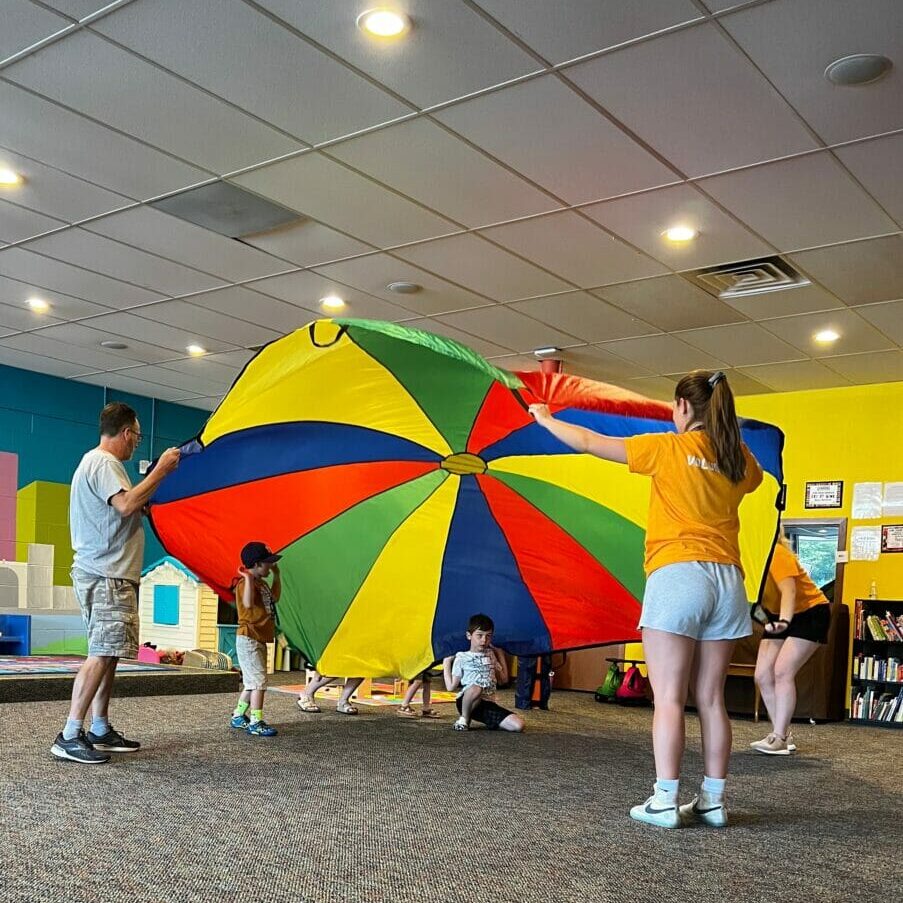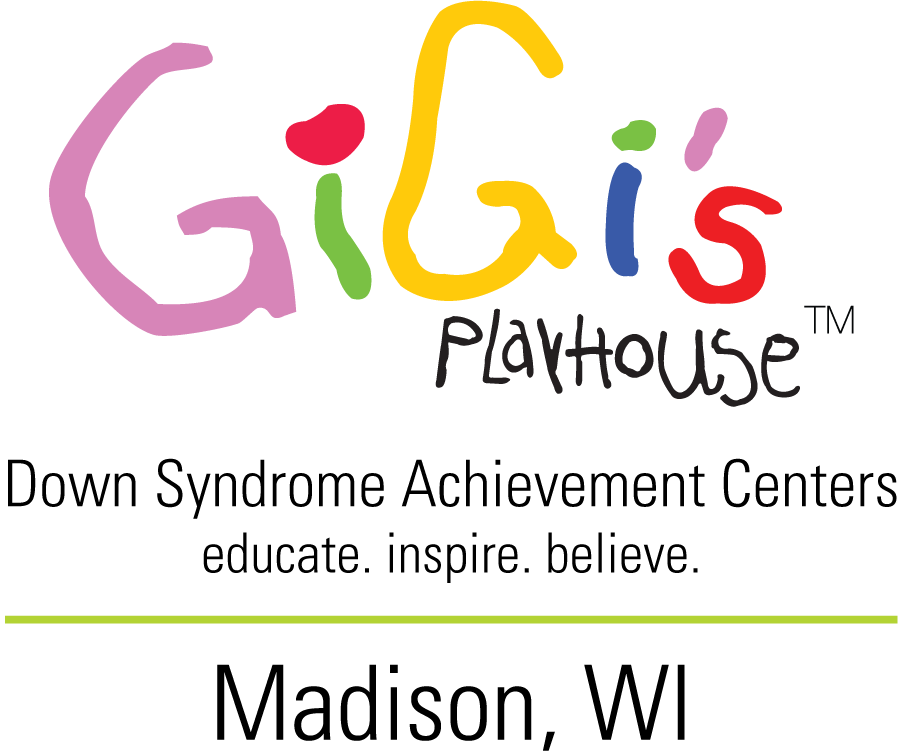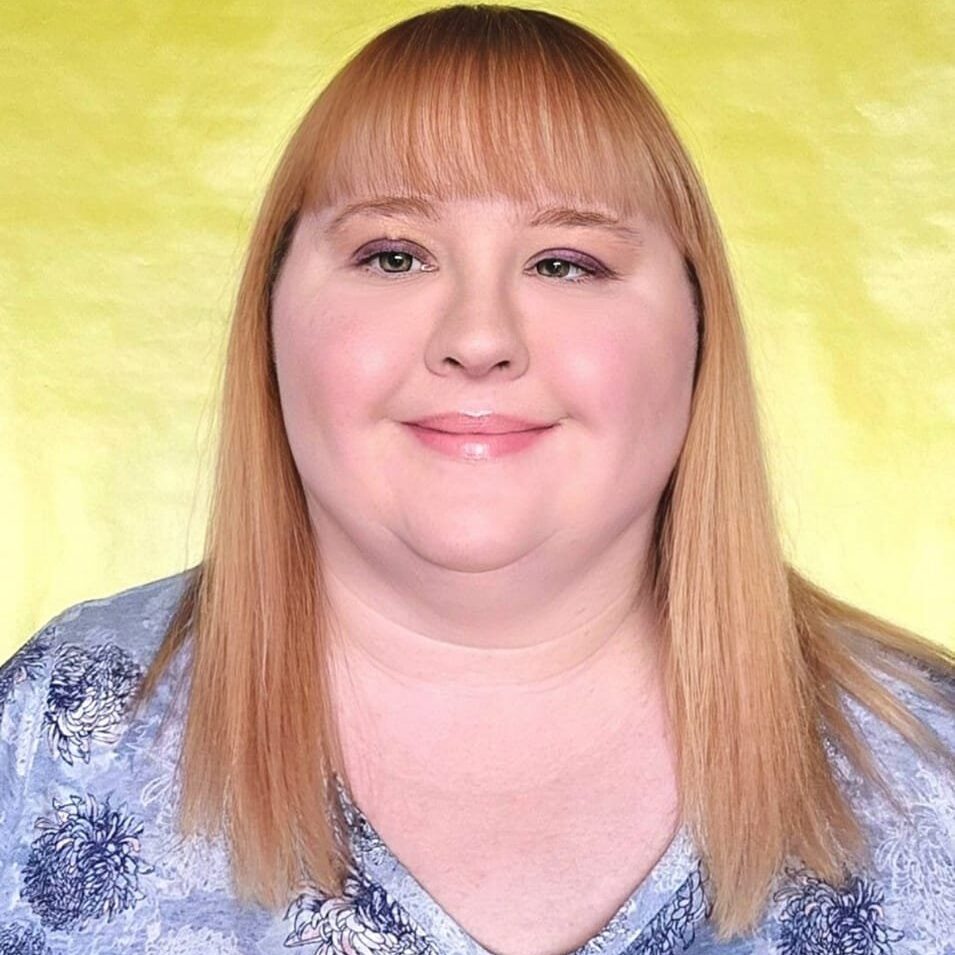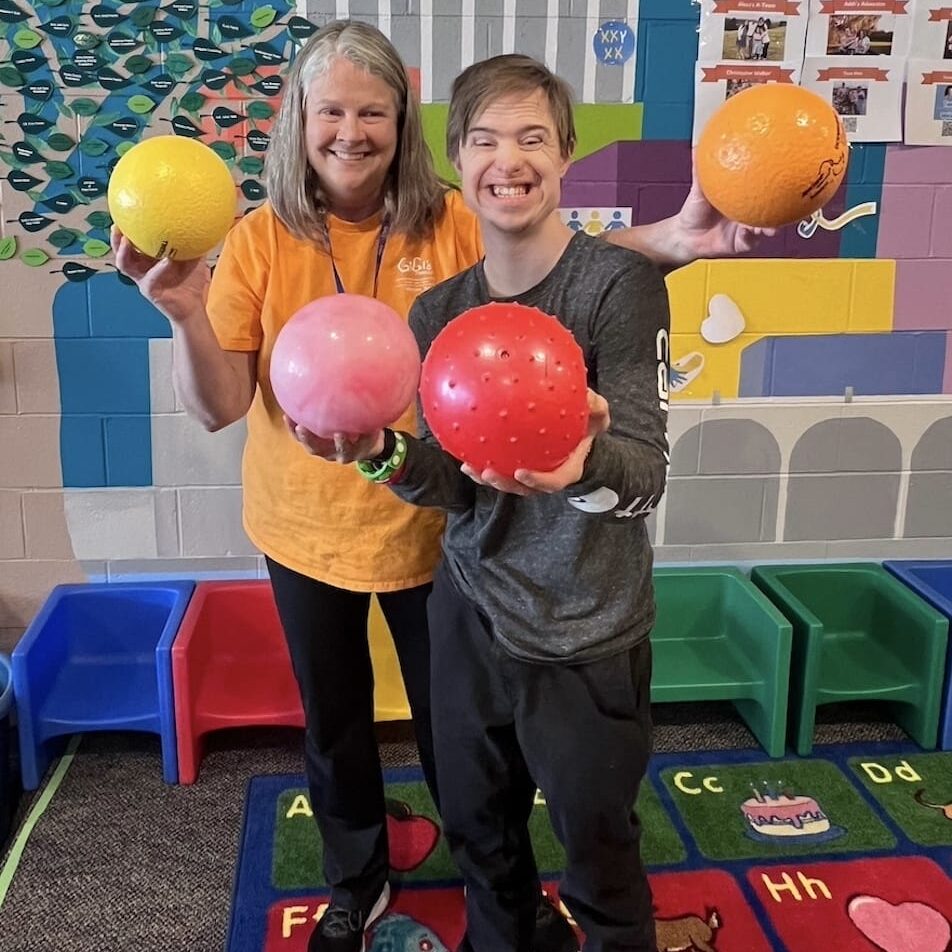Since seventh grade, I have worked with children with disabilities as a volunteer, camp counselor, tutor and babysitter. When it was time to decide on a location for my service learning project, I wanted to have a completely new and different experience. After some exploring, I discovered GiGi’s Playhouse, a Down Syndrome Achievement Center…..
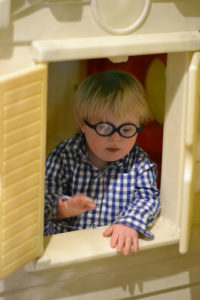 Since seventh grade, I have worked with children with disabilities as a volunteer, camp counselor, tutor and babysitter. When it was time to decide on a location for my service learning project, I wanted to have a completely new and different experience. After some exploring, I discovered GiGi’s Playhouse, a Down Syndrome Achievement Center. They have locations across the country that serves individuals with Down syndrome and their family members. This was that fresh experience that I was looking for, since I never had any interactions with individuals with Down syndrome previously. I was very eager, yet slightly nervous to start my service learning because I was not really sure what to expect. All I had was a brief orientation and a couple of email correspondences with the site coordinator. Walking into the Playhouse for the first time was an amazing experience. It is filled with bright colored walls, inspirational paintings and pictures, toys, music, and smiling faces. From the moment that I walked inside, I knew that the rest of my semester was going to be amazing. In fact, my time spent at GiGi’s Playhouse was the highlight of my semester.
Since seventh grade, I have worked with children with disabilities as a volunteer, camp counselor, tutor and babysitter. When it was time to decide on a location for my service learning project, I wanted to have a completely new and different experience. After some exploring, I discovered GiGi’s Playhouse, a Down Syndrome Achievement Center. They have locations across the country that serves individuals with Down syndrome and their family members. This was that fresh experience that I was looking for, since I never had any interactions with individuals with Down syndrome previously. I was very eager, yet slightly nervous to start my service learning because I was not really sure what to expect. All I had was a brief orientation and a couple of email correspondences with the site coordinator. Walking into the Playhouse for the first time was an amazing experience. It is filled with bright colored walls, inspirational paintings and pictures, toys, music, and smiling faces. From the moment that I walked inside, I knew that the rest of my semester was going to be amazing. In fact, my time spent at GiGi’s Playhouse was the highlight of my semester.
My time at GiGi’s Playhouse was mostly spent between three programs. Each program had various goals and targeted a different age group. Every Wednesday, I went to the Playhouse to take part in a one-on-one session with Joe, a four-year-old boy with Down syndrome who loves singing, toys that make noise, and running around. I spent my time following him around the Playhouse, letting him decide what he wanted to do. I was also lucky enough to volunteer at the Teen Tastic program for teenagers with Down syndrome. This group meets monthly and goes on various trips into the community. The trips that I attended included going to the terrace for a walk on the Lakeshore Path and Babcock ice cream and handing out water to runners in the
pouring rain at the Haunted Hustle.The last program that I spent my time at was SMART. SMART is a program for adults with Down syndrome to help develop social and life skills through a variety of fun and educational activities.
My Wednesdays were always thrilling. At 6:00pm I would meet Joe and his family at the Playhouse. When I first met him, he was already at the Playhouse sitting and playing with toys. At first, I assumed that he would be exhausted from his day, but I was wrong. From the minute that I got there he was constantly on the move. He went from running around to playing in the pretend kitchen to the sensory room and then back to running around. The sensory room was both Joe and my favorite part of the Playhouse. It had a ball pit, mats, and a wall of textured, light up, and noise things. Very quickly, I learned that he did not like to play with one toy for more than three minutes. This constantly kept me on my feet. I also realized that he also focused on random, small aspects of toys. For example, on the toy piano, instead of hitting the piano keys to make noise, he was fixated on the button on the microphone. Reading that individuals with intellectual disabilities have trouble when it comes to focusing on something relevant and attending helped me understand this (182). Once I knew this, I felt that I was better able to understand Joe. I started to notice some of the smaller features of toys, which helped me relate to how he was playing with them.
Before I started working with Joe I was told that he had very little speech, but I did not know how to interpret this. After our first week together, I noticed that the only words that he said consistently and intelligibly were “hello”, “okay”, and “buh-bye”. He would do this as he pretended to be on the phone, imitating his parents cell phone conversations: “Hello, okay buhbye” he said constantly. This surprised me because by the age of four, a child should have about 1,000 words (364). However, I then remembered that individuals with an intellectual disability are more likely to have speech and language impairments than their peers (184). I tried to provide Joe with a language rich environment when we were together. I would label the toys that
we played with and the actions that we were doing. For example, when he went into the little house, I said “open” when he opened the door and “close” when he closed it. As our sessions continued, I started to notice that his vocabulary was increasing and he was slowly adding words to it. I also realized that he loved music and songs, so I was always singing “Row Row Row Your Boat”, “ABCs”, and “Twinkle Twinkle Little Star”. As the weeks went on, he was joining in more and more with the words. He would even sing a little bit of the song that he wanted in order to get me to start singing it. At our last session together it was fabulous to see how much more he was talking and singing.
While spending time with Joe was always a blast, Teen Tastic was just as much fun. From my first session, I noticed that the teenagers lead a lot of it. To me, it seemed like it was form of self-determination, which is allowing individuals with disabilities to make their own decisions (199). My favorite monthly session was when met at the terrace. Here, the participants were able to decide what they wanted to do. They decided to walk some of the Lakeshore Path and then get ice cream. Also, when we were done eating the ice cream, the participants determined that they wanted to play cards and decided together what game to play. Another activity that self-determination was present in was when we ate pizza and planned for future events. From handing out water and protein to runners at the Haunted Hustle in October, the Teen Tastic program was awarded a grant. The group of teenagers with Down syndrome all had unique personalities and different hobbies, so the program leader wanted to allow the participants to plan their future programs and budget the money that they had available. When we convened at the Playhouse, the participants had the opportunity to tell us what they like to do and figure out how we could make a Teen Tastic event around it. I felt that giving the teenagers the opportunity to make these decisions would help them in many aspects of their lives. It will enable them to make future decisions on their own and it will allow them to be able to have their voice heard and participate in activities that they like. Overall, the Teen Tastic program was successful in promoting self-determination.
Moving on, the SMART program also had an interesting element related to the course. That was self-advocacy. Self-advocacy is the belief that individuals with intellectual disabilities stand up for themselves and their ideas (199). This was seen in many different ways. Since October was Down syndrome awareness month, the participants learned a little bit about Down syndrome and the extra chromosome that they have. After, we made bookmarks to give out to people to raise awareness about Down syndrome. Some aspects of making the bookmarks were difficult, so the participants had to request help from volunteers when they needed it, instead of the volunteers automatically going up to them. This activity, that everyone loved taking part in, allowed the individuals to both learn and then spread their knowledge about Down syndrome to others as a way to advocate for themselves and ask for help to accomplish what they needed. Self-advocacy was also seen through the week that was spent learning about health and wellness. This week, the participants were taught about proper hand washing, nutrition, and basic first aid. With these skills, they can not only take care of themselves, but also request the proper help, a skill that is extremely important for an individual to have. Finally, at the end of each SMART session, all of the individuals were asked what their favorite part and biggest challenge was. These questions allowed the participants to reflect on what they did. While this activity was simple and only takes up the last five minutes, it instilled a sense of self-advocacy in the participants by prompting them to talk about where and why they faced challenges. This will help them stand up for themselves in the future. In each of these sessions at SMART, the adults with Down syndrome had fun while learning how to be a self-advocate.
Even though a lot of SMART is spent doing structured activities, there was also a lot of time for participants to converse with each other and the volunteers. For me, this was extremely valuable and I was able to learn a lot from the participants. Something that I had not realized before was that all of the individuals had some sort of employment. One woman told me that she has three jobs, one of them being at a local restaurant on State Street that I go to all the time. There, she prepares the vegetables for salad. The video An Age of Exclusion showed me that individuals with disabilities demanded certain rights in the areas of employment and independent living. Fortunately, this was granted in 1990 with the passing of the American with Disabilities
Act (ADA). Not only do these adults with Down syndrome that I have met have jobs, but many of them get to their jobs on their own each day. A woman was telling me how she takes the Madison busses to get to work. After reflecting about this for a little while, I remembered that we talked about Universal Design in class. The principles of simple and intuitive use and perceptible information aid individuals with disabilities that are using these forms of public transportation to get to work on their own. These laws and ideas all make it possible for individuals with Down syndrome to live independent lives.
At the front of GiGi’s Playhouse, they have couches and chairs for parents and family members to relax on while their children or siblings are participating in programs. The idea of this is not only for parents to have a place to sit comfortably, but also for them to share tips and experiences and lend support. While at the Playhouse, I have definitely noticed this. During my sessions with Joe, there was also a woman with Down syndrome at the Playhouse receiving speech-language therapy. I noticed Joe’s parents and her parents having conversations. One conversation that I vividly remember overhearing was about toilet training. Joe’s mom was saying that he is willing to sit on the toilet, but it is going to take a long time to actually get him out of diapers. The woman’s mother began to reflect on her daughter’s toilet training experience and shared some advice. She also reassured her that it would get done. This instance warmed my heart. It also reminded me of the family panel that we had in class. The members on the panel were able to relate to each other’s stories and offer a hug or tissue when one needed it because they knew how it felt.
My experience at GiGi’s Playhouse was phenomenal. From the program staff that supported me along the way to the individuals with Down syndrome and their family members, I cannot have imagined a better service learning experience for the semester. I learned more than I ever could have thought. These lessons start off with the intense bond that family members with individuals with disabilities have. Further, I was able to see firsthand the wide range of abilities and hobbies that the individuals with Down syndrome have and how to help promote them. I also witnessed the hard work and patience that it takes to care for an individual with a disability. Going off of that, I was able to see how appreciative family members are for the services and people who care for and work with their children. In addition to that, I got to experience what it is like to communicate professionally with parents and other family members and listen to their values and beliefs. The experiences that I had at GiGi’s Playhouse helped contribute to making me a more compassionate, caring, and patient person in just the course of a semester. All of these lessons that I learned at GiGi’s Playhouse not only supplemented what I learned in class, but also are valuable for my future career as a Speech-Language Pathologist. In fact, I believe that these lessons and skills that I learned will make me an even better clinician, and I will try my best to remember all of this and implement it into my work. I am very thankful for the experiences that
I had at GiGi’s Playhouse and am eager to continue volunteering there next semester.
Recent Posts
